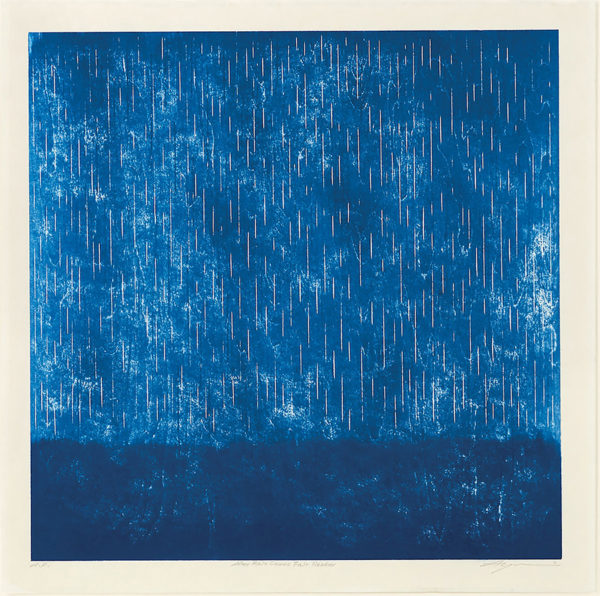
Ayomi Yoshida, After Rain Comes Fair Weather, 2019, woodblock print, 22 x 22 in., Gift of Scripps Collectors’ Circle
On a chilly evening late last fall, the Scripps Collectors’ Circle gathered to choose artworks to enrich the collection for teaching. The event was dedicated to distinguished alumna and former trustee Gabrielle Jungels-Winkler, in appreciation of her immense generosity toward enhancing the arts and humanities at Scripps.
The Scripps collection is used for teaching purposes both inside and outside of the classroom. The College has never had an art acquisition fund, and no tuition monies have ever been spent on art. While understandable, this practice has unfortunately left incomplete areas in the collections, hindering their function as a complement to the curriculum. Thus, the SCC was formed, with the mission of enhancing the collection. The patron of this event–the Haskell Fund–generously took over the expenses, thereby ensuring that all membership fees would be used exclusively toward the purchase of works.
The evening began at Boone Hall, where Williamson Gallery Director Mary MacNaughton introduced a group of presenters, all current or former Scripps interns. Each student brought forward the merits of “her” work of art, and supplied convincing arguments to persuade SCC members to vote to add the piece to the Scripps collection. This year, the emphasis was on the arts of Asia.
The following works are some of those added to the collection through the generosity of the Scripps Collectors’ Circle:
SCROLL PAINTING OF GENJI, EDO PERIOD (1603-1868)
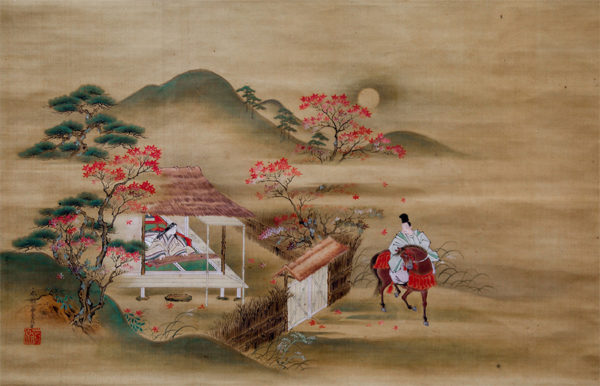
Tosa School, Scroll Painting of Genji, Koto Music and Moonlight, 17th-19th c., paint on silk, Gift of Scripps Collectors’ Circle
This ethereal scroll represents a vignette from the most famous Japanese Epic The Tale of Genji, written almost one thousand years ago. This silk scroll is a work from the famed Tosa school, one of the three most important styles of painting in Japanese history.
AYOMI YOSHIDA
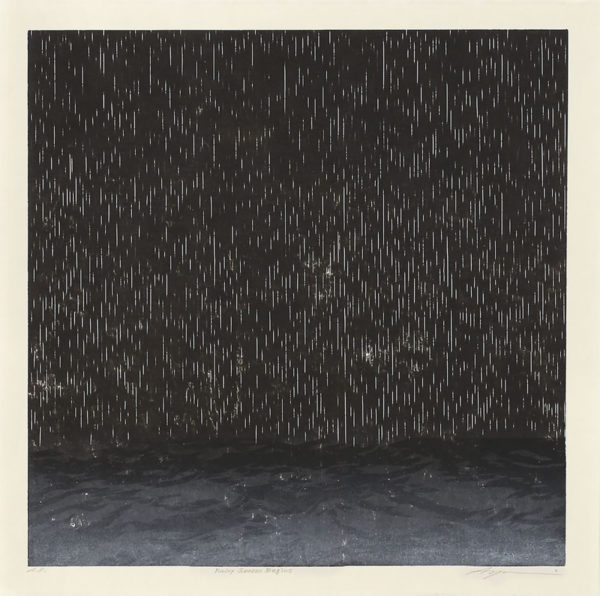
Ayomi Yoshida, Rainy Season Begins, 2019, woodblock print, 22 x 22 in., Gift of Scripps Collectors’ Circle
Rainy Season Begins, 2019
After Rain Comes Fair Weather, 2019
Yoshida’s contemporary woodcuts are a testament to the enduring legacy of the woodblock print, and elegantly illustrate the simultaneous softness and tension of rain. Yoshida is a fourth-generation artist, and these prints mark the addition of the 4th and final Yoshida artist in the collection, completing the family’s representation in the teaching collection.
KOREAN, JOSEON DYNASTY (1392-1910)
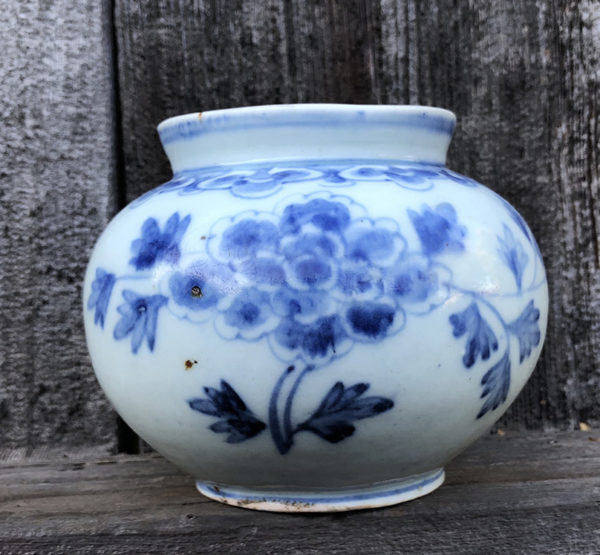
Joseon Dynasty Jar, Anonymous, Korea, porcelain and glaze, 4 1/4 in. x 5 3/8 in., Gift of Scripps Collectors’ Circle
Made of luminous white porcelain and cobalt blue, so called “blue and white ware” is known for the simple yet elegant design largely featuring natural motifs. These vessels were popular in the Joseon Period due to the widespread influence of Confucianism, which favored clean presentation. This particular piece features a stylized peony as the central form and delicate lines coating the rim of the vessel, which is highly representative of standard Joseon Porcelain.
ATTRIBUTED TO FÉLICE BEATO (1832-1909)
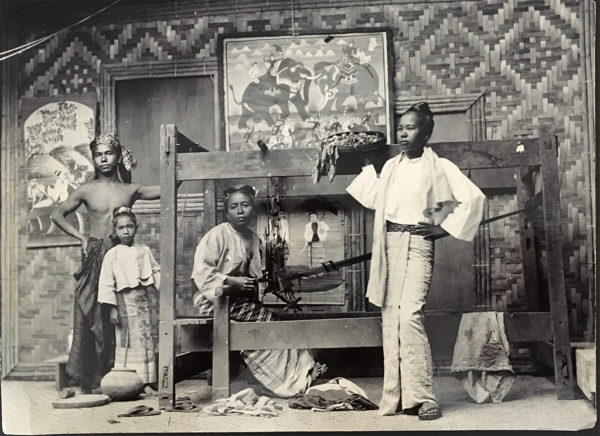
Attributed to Felice Beato, Interior of Burmese House, c. 1900, 7 x 9 1/2 in., Gift of Scripp Collectors’ Circle
Félice Beato, a renowned photographer of 19th-century Asian subjects who established a studio in Yokohama in 1863. Genre scenes such as Interior of Burmese House will give insight into images of social types produced for Western consumption. This type of image calls attention to the use of captioning to lend authenticity to compositions, the posing of sitters, and the role of photography in colonial narratives.
SUITEN – WATER DEITY
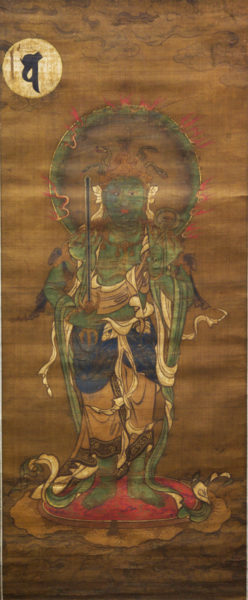
Anonymous, Japan, Suiten (Water Deity), Muromachi Period, 1336-1573, paint on paper, Gift of the Scripps Collectors’ Circle
Suiten, the Buddhist water deity, is one of the Gods of the Twelve Directions, and lord of the serpents. This Muromachi Period painting is one of the oldest Japanese painting in the Williamson Gallery collection.
Slider Image: Samella Lewis, Children’s Game, 1968, Linocut, 25 x 31 in.

